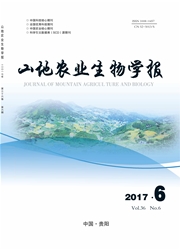

 中文摘要:
中文摘要:
植物miRNA是由约19-25个核苷酸组成的非编码单链小RNA,其表达不受翻译过程的影响,比编码基因更迅速,对目标基因表达的调控效率更高。近年研究证明,miRNA在植物应答非生物胁迫中发挥着重要作用。本文基于国内相关文献报道,阐述了植物miRNA的合成及作用机制,miRNA对水分、温度、高盐及氧化等非生物胁迫的应答反应,以及miRNA对营养亏缺的调节机制,并对这些研究领域所存在的问题和发展趋势进行了讨论,以期为全面认识植物的抗逆分子机理提供新信息。
 英文摘要:
英文摘要:
Plant miRNAs are endogenous small non-coding RNAs with 19-24 nucleotides,and play key roles in regulating developmental processes through perfect or nearly perfect complementarity to their target mRNAs,facilitating site-specific cleavage or translation repression. Recently,plant miRNAs had been proved to be involved in various stress responses. In addition,the expression profiles of most miRNAs functioned in growth and development are significantly altered during abiotic stresses,suggesting the idea that plants may balance their metabolism with environment through miRNAs for survival. Currently,we focus on recent progress in understanding of biogenesis and regulatory mechanisms of plant miRNAs,and also highlight miRNAs putatively involved in abiotic stress responses,including water,temperature,salt,and oxidative stresses,as well as nutrition deficiencies. Also,several delimmas and perspectives over this field are put forward for the ongoing work herein.
 同期刊论文项目
同期刊论文项目
 同项目期刊论文
同项目期刊论文
 期刊信息
期刊信息
